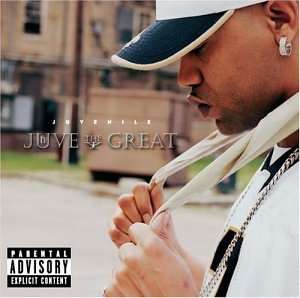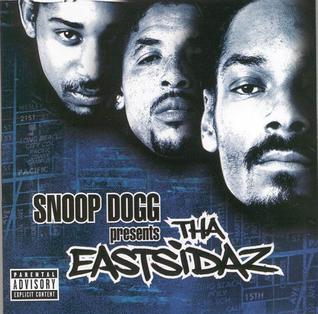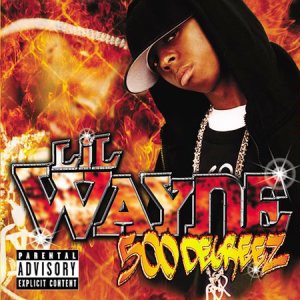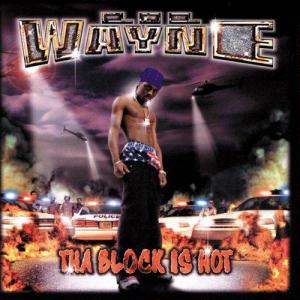
Word of Mouf is the third studio album by American rapper Ludacris. It was released through Disturbing tha Peace and Def Jam South on November 27, 2001. It contains four singles: "Rollout ", "Area Codes", "Move Bitch", and "Saturday ".

Dwayne Michael Carter Jr., known professionally as Lil Wayne, is an American rapper. He is regarded as one of the most influential hip hop artists of his generation, and is often mentioned among the greatest rappers of all time. He was signed by American rapper Birdman to his record label Cash Money Records in 1995, becoming the youngest member of the label at age eleven. In the following years, he emerged as the flagship artist of Cash Money Records before ending his association with the imprint in June 2018.

Terius Gray, better known by his stage name Juvenile, is an American rapper best known for his work with Birdman's Cash Money Records in the late 1990s and early 2000s, both solo and as a member of the label's then-flagship group, Hot Boys.

400 Degreez is the commercial debut and overall third studio album by American rapper Juvenile. The album was released on November 3, 1998, by Universal Records and Bryan "Baby" Williams' Cash Money Records. It remains Juvenile's best-selling album of his solo career, with six million copies sold as of 2021. The album received quadruple platinum certification by the Recording Industry Association of America (RIAA) on December 19, 2000.

Cash Money Records is an American record label founded in 1991 by brothers Ronald "Slim" Williams and Bryan "Birdman" Williams. The label gained prominence in the late 1990s for having signed and released albums for New Orleans-based musical acts including Juvenile, B.G., and Hot Boys. It became an imprint of Universal Records, a division of Universal Music Group in March 1998, and remained so during its following iterations as Universal Republic, Universal Motown and ultimately Republic Records.

Juve the Great is the sixth studio album by American rapper Juvenile. The album was released on December 23, 2003, by Cash Money Records, Universal Music Group and UTP Records. It was Juvenile's last album on the Cash Money label. The album was certified platinum July 20, 2004, becoming his third album to do so, after 400 Degreez and Tha G-Code.
Big Tymers was an American hip hop duo composed of Cash Money Records co-founder Baby and the label's lead producer Mannie Fresh, both of whom originate from New Orleans, Louisiana. Active from 1997 to 2005, and once more in 2018, it was spun off from the label's supergroup, Cash Money Millionaires.

The Hot Boys are an American hip hop group formed in New Orleans, Louisiana, in 1997. The group was made up of B.G., Lil Wayne, Juvenile and Turk.

Back for the First Time is the second studio album by American hip hop recording artist Ludacris. The album, his major label debut, was released on October 17, 2000, as planned, under Disturbing tha Peace and Def Jam South.

Tha Last Meal is the fifth studio album by American rapper Snoop Dogg. It was released through No Limit, Doggy Style, and Priority Records on December 19, 2000. It was his third and final studio album released on No Limit, marking this record his first album on his newly founded label, called Doggy Style, alongside Priority in the United States. The album title makes reference to being the last record partially owned by his former label, Death Row Records. The album was produced by Dr. Dre, Timbaland, and Soopafly, among others. The album includes four official singles: "Snoop Dogg ", "Lay Low", "Loosen' Control", and "Wrong Idea". The album was generally met with positive reception with many critics citing it as one of his best albums.

Tha Carter is the fourth studio album by American rapper Lil Wayne. It was released on June 29, 2004, by Cash Money Records and Universal Records. The production on the album was mostly handled by Cash Money's former in-house producer Mannie Fresh, before Mannie left the label. A chopped and screwed version of the album was also released by Cash Money Records in 2004. The album spawned four sequels: Tha Carter II, Tha Carter III, Tha Carter IV, and Tha Carter V.

Snoop Dogg Presents: Tha Eastsidaz is the eponymous debut studio album by American gangsta rap group Tha Eastsidaz. It was released on February 1, 2000, on Dogghouse Records and TVT Records. The album was recorded at Dogghouse Studio, Music Grinder & Skip Saylor Recording, Hollywood, California.

Da Baddest Bitch is the debut album by American rapper Trina. It was released on March 21, 2000, through the label Atlantic/Slip-N-Slide Records. The album debuted at number thirty-three on the US Billboard 200 and number eleven on the Top R&B/Hip-Hop Albums chart, and entered the Top R&B/Hip-Hop Catalog Albums in 2002.

500 Degreez is the third studio album by American rapper Lil Wayne. It was released on July 23, 2002, by Cash Money Records and Universal Records. The album's title was inspired by the album 400 Degreez (1998), by fellow rapper and label-mate Juvenile.

Tha Carter III is the sixth studio album by American rapper Lil Wayne, released on June 10, 2008, by Cash Money, Universal Motown & Young Money Entertainment. It follows a string of mixtape releases and guest appearances on other hip hop and R&B artists' albums. The album features appearances from Jay-Z, T-Pain, Fabolous, Robin Thicke, Busta Rhymes, Juelz Santana, Babyface, Bobby V, and Kanye West, among others. It also features Static Major, who is credited posthumously following his death in February of that year.

Like Father, Like Son is a collaborative studio album by American rappers Birdman and Lil Wayne. The album was released on October 31, 2006, through Cash Money Records and Universal Records. Guest appearances include Fat Joe, T-Pain, Rick Ross, Tha Dogg Pound and All Star Cashville Prince. Producers included Swizz Beatz and Scott Storch.

I Got That Work is the third studio album by American hip hop duo Big Tymers. Originally scheduled for a February 8, 2000 release, it was ultimately released May 16, 2000, by Universal Records and Bryan "Baby" Williams' Cash Money Records. The album features the singles, "Get Your Roll On" and "#1 Stunna"; "#1 Stunna" was also featured on the stand up comedy movie The Original Kings of Comedy's soundtrack.
Young Money Entertainment is an American record label founded by rapper Lil Wayne in 2005. It was launched as an imprint of Cash Money Records — a joint venture colloquially branded as Young Money Cash Money Billionaires — and Republic Records until 2018, after which the label operated severally as an imprint of latter. Wayne's longtime affiliate, rapper Mack Maine was appointed the company's president in 2009.

The discography of American rapper Birdman consists of four studio albums, three collaborative albums, two mixtapes, 23 music videos, 48 singles, including 23 as a featured artist, and 7 promotional singles. In 2002, Birdman released his debut studio album Birdman under the stage name Baby. It peaked at number 24 on the US Billboard 200, spending 23 weeks on the chart. Three singles were released from the album; the first, "Do That...", reached number 33 on the US Billboard Hot 100, and the second, "What Happened to That Boy", reached number 45 on the same chart. The third single, "Baby You Can Do It", only charted on the US Hot R&B/Hip-Hop Singles Sales chart. In 2003, Birdman collaborated with singer Ginuwine on the single "Hell Yeah" and rapper Bow Wow on the single "Let's Get Down", which reached numbers 17 and 14 respectively on the Hot 100.

"Tha Block Is Hot" is the debut studio album by American rapper Lil Wayne. Released on November 2, 1999, it was brought to audiences by Universal Records and Bryan "Baby" Williams' Cash Money Records. The recording sessions took place at Cash Money Studios in Metairie, Louisiana, with the executive production from Bryan "Baby" Williams and Ronald "Slim" Williams. All tracks on the album were produced by Mannie Fresh himself. Interestingly, before its release, the album was initially intended to be titled "I Ride At Night."

















